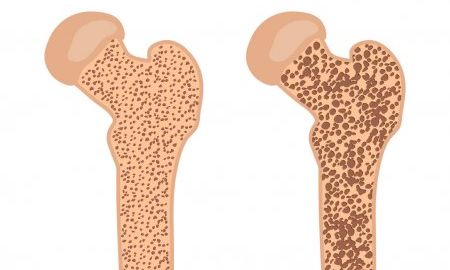Osteoporosis is a disease that makes your bones weak. It happens when your bones don’t have enough calcium and other minerals, and it can lead to fractures and pain. Most often it occurs in older people. The good news is that you can take steps now to help keep your bones strong when you’re young and when you’re older too. In this post we will cover some of the top ways to prevent osteoporosis. One of the most important preventions steps to take is to start by getting enough calcium. Eating calcium-rich foods is the best way to do this.
Foods rich in calcium include:
- Low-fat dairy foods (milk, yogurt, and cheese)
- Broccoli and spinach
- Almonds
- Calcium-fortified milk alternatives (soy, rice, almond beverages)
- Calcium-fortified orange juice
- Calcium-fortified breakfast cereal
Vitamin D is another important nutrient for your bones. It helps your body absorb calcium and store it in your bones. Some vitamin D is made by your body after your skin is in the sun.
You can also get it from these foods:
- Egg yolks
- Saltwater fish (such as mackerel, salmon, and halibut)
- Liver
- Milk and milk alternative foods fortified with vitamin D
Some people may not be able to get all of the vitamin and minerals they need from their food. If you are concerned about your nutrition, talk to your health care practitioner. He or she can advise you concerning supplements that include calcium, vitamin D, magnesium, and other vitamins and minerals your body needs for healthy bones.
Some of your eating and drinking habits may cause you to lose calcium. This may raise your risk of osteoporosis. Your risk may be higher if you:
- Drink too much caffeine (e.g., more than 3 cups of coffee a day)
- Have more than 3 servings of alcohol per day
- Frequently drink carbonated cola soft drinks
- Eat foods high in salt (sodium) or sugar
The other key step you can take to build and maintain strong bones is to exercise. Exercise not only strengthens your muscles; it also strengthens your bones. Muscles get bigger and stronger when they’re used. And bones get stronger and denser when they have to deal with any type of force—like weight or gravity. To help increase bone mass and density, focus on weight-bearing exercise and strength training. Weight bearing exercise is where your feet and legs bear your body weight. You could try:
- Walking
- Jogging
- Dancing
- Climbing stairs
- Hiking
- Tai chi
When you do strength training, your muscles work against some type of resistance. This could mean lifting weights, doing strength exercises at the gym. Or it could mean working out with resistance bands at home. When your muscles work against resistance, they stress your bones. This makes your bones stronger. Being active in your daily life is also important for your bones. Your best bet is to lead an active life that includes a range of physical activities. This will strengthen both your muscles and your bones. Don’t let age or being inactive rob your bones of calcium. The same healthy habits that help children build strong bones can help you keep your bones strong as you get older. By sticking with healthy eating and exercise habits, you can slow down calcium loss and keep your bones healthy for life.
Can spinal resistive exercise on the MedX lumbar extension machine help prevent osteoporosis? At the annual meeting of the College of Sports Medicine in 1992 paper was presented entitled Effects of Isolated Lumbar Extension Resistance Training on Bone Mineral Density of the Elderly which showed that changes in bone mineral density correlated with changes in lumbar extensor strength and a study published in Medicine and Science in Sports and Exercise (34 no1 17-23 Ja 2002) suggested that a resistive exercise program on the MedX lumbar extension machine reduced bone turnover.
If you would like to determine if you have a lumbar strength deficit or our treatment may be beneficial in your individual case or to get some additional prevention tips schedule a free consultation today at (480) 633-8293.
